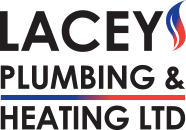Commercial Boilers vs Domestic Boilers
Typically, domestic and commercial properties require completely different heating systems to match their respective footprints and meet the needs of their occupants.
Get a Quote Request a CallTypically, domestic and commercial properties require completely different heating systems to match their respective footprints and meet the needs of their occupants.
However, for many businesses operating in commercial properties, a commercial boiler may not be necessary, leaving business owners with the chance to have a more cost effective solution of installing a domestic boiler.
Key Points
- Boilers above 70kW are classed as commercial boilers
- Commercial and domestic boilers are required to have high efficiency ratings
- Some commercial properties may benefit from domestic boilers
What classes as a commercial boiler?
Boilers are classed as “commercial” based on their size and where they are installed. They have higher outputs than standard boilers, so differ from residential models.
Boilers that are classed as commercial are usually:
- Rated above 70kW
- Fitted with gas pipework with a diameter of 35mm and above
- Installed in commercial and non-domestic buildings such as shops, schools and hospitals
What classes as a domestic boiler?
Domestic boilers are classed as those which have a lower output, usually around 10 to 40kW. Domestic boilers are less powerful than commercial boilers, and they usually come in much smaller sizes.
Domestic boilers that are used in residential homes can have up to 15 radiators, producing heating and hot water for homes with 6 or fewer people.
What is the difference between domestic and commercial boilers?
Generally speaking, the main difference between a domestic and commercial boiler comes down to the size of the unit.
Boiler size, or the output unit, is measured in kilowatts (kW), and domestic boilers tend to have a much lower output than commercial ones as we’ve mentioned. In general, those with much higher outputs should be classed as commercial boilers.
Commercial vs Domestic Boiler: Size
Commercial boilers can vary quite drastically in terms of size, whereas, generally speaking, domestic boilers aren’t too dissimilar in size from model to model.
When you’re choosing a new boiler, whether that’s for a commercial or domestic property, you’ll need to have a good idea of the heating and water requirements of your premises.
In a home, this could be counting the number of rooms and/or radiators. In a commercial space, it could be the building size or number of staff and/or customers that use the facilities.
Commercial vs Domestic Boiler: Output
It’s not unsurprising that domestic boilers tend to have smaller outputs than commercial boilers. In many cases, domestic boilers will range from 24 to 42kW, although they can be as high as 70kW.
In general, any boiler above 70kW is classed as a domestic boiler. These boilers are suitable for larger premises, such as schools, offices and other non-domestic properties.
Gas and oil-fired commercial boilers are often in the 250kW to 1,500kW range. This huge spread of output helps to ensure that organisations are able to meet their heating and hot water needs.
Commercial vs Domestic Boiler: Efficiency
Efficiency matters, no matter whether you have a commercial or domestic boiler. High-efficiency boilers utilise fuel efficiently, generating the desired level of heat while using the least amount of fuel possible.
Current standards require commercial boilers to have a minimum efficiency rating of at least 81-88%, whereas residential boilers will usually need to be a minimum of 90% efficient to ensure energy is not wasted.
Some smaller businesses may prefer to have a domestic boiler based on the size of the property, but generally speaking, most experts agree that it is best to stick with what applies to your situation.
Commercial vs Domestic Boiler: Complexity
Commercial boilers are much larger than domestic ones, making them more complex. They have greater output capacities to accommodate the needs of commercial properties, which in turn means there are stricter safety standards and regulations.
Domestic boilers, designed for domestic properties, however, are smaller and much less complex. They can be fitted almost anywhere in a house, and can oftentimes can be moved around from one area of the house to another without too much difficulty.
Can you fit a domestic boiler to a commercial property?
Yes, you can fit a domestic boiler into a commercial property. This is particularly beneficial for smaller commercial properties, such as offices, that don’t need the size of a commercial boiler or can’t facilitate the size.
However, you should be aware that with a domestic boiler, you will not get the same output as a commercial one. For example, if you work in a small hairdressers, you would need a much higher water output than an office environment, such as a travel agent.
How do you know whether you need a commercial boiler or a domestic boiler?
If you have a commercial property but you’re unsure whether a commercial or domestic boiler is best for you, we always advise that you speak to professionals for the best advice.
Our surveyors can use their expertise to work out heat and hot water output required for your property and advise on the most suitably sized boiler for your requirements.
At Lacey Plumbing and Heating, we are a team of professional heating engineers who have years of experience helping both domestic and commercial customers. For advice on whether a commercial or domestic boiler is best suited for your property, get in touch with our team today.
Unit 11 Eton Business Park
Eton Hill Road, Radcliffe, M26 2ZS
Opening Times
Mon – Fri 8am – 5pm
Call Us Today
0161 879 4949